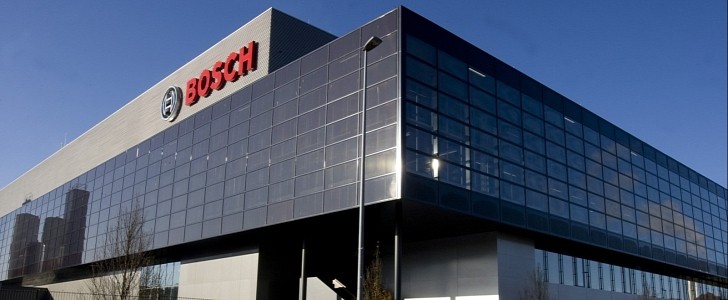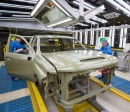The whole world is working on multiple fronts to deal with the chip shortage, and now Bosch is joining the effort with another investment.
The company has announced that it’d spend another $296 million specifically to expand the production at the Reutlingen facility, where it makes chips for cars and consumer electronics.
Bosch’s most recent investments in chip production were aimed at its factories in Dresden and Reutlingen.
Last year, the company announced it would spend a total of $473 million specifically to boost the semiconductor production at the Dresden facility, so its new round of investments is aimed at the other German plant. Bosch estimates the expansion will allow for the creation of 44,000 square meters of cleanroom space for the production of chips.
Bosch says it also wants to invest in the production of chips at its facility in Penang, Malaysia, as it’s working on multiple fronts to deal with the strong demand for semiconductors.
“The construction of a new extension in Reutlingen will create an additional 3,600 square meters of ultramodern clean-room space. As of 2025, this additional capacity will produce semiconductors based on technology already in place at the Reutlingen plant. Bosch is also extending an existing power supply facility and will construct an additional building for media supply systems serving both the new and existing production areas. The new production area is scheduled to go into operation in 2025,” the company said.
Of course, Bosch’s investments won’t produce any change in the current inventory of chips overnight. The company itself explains the expansion will take a while to complete, and the upgrade to the additional capacity will be complete in 2025.
In the meantime, opinions are still divided on whether the chip shortage can come to an end this year, but there are more signals that the normal inventory levels would finally be reached in 2023 rather than in the second half of this year.
Bosch’s most recent investments in chip production were aimed at its factories in Dresden and Reutlingen.
Last year, the company announced it would spend a total of $473 million specifically to boost the semiconductor production at the Dresden facility, so its new round of investments is aimed at the other German plant. Bosch estimates the expansion will allow for the creation of 44,000 square meters of cleanroom space for the production of chips.
Bosch says it also wants to invest in the production of chips at its facility in Penang, Malaysia, as it’s working on multiple fronts to deal with the strong demand for semiconductors.
“The construction of a new extension in Reutlingen will create an additional 3,600 square meters of ultramodern clean-room space. As of 2025, this additional capacity will produce semiconductors based on technology already in place at the Reutlingen plant. Bosch is also extending an existing power supply facility and will construct an additional building for media supply systems serving both the new and existing production areas. The new production area is scheduled to go into operation in 2025,” the company said.
Of course, Bosch’s investments won’t produce any change in the current inventory of chips overnight. The company itself explains the expansion will take a while to complete, and the upgrade to the additional capacity will be complete in 2025.
In the meantime, opinions are still divided on whether the chip shortage can come to an end this year, but there are more signals that the normal inventory levels would finally be reached in 2023 rather than in the second half of this year.






